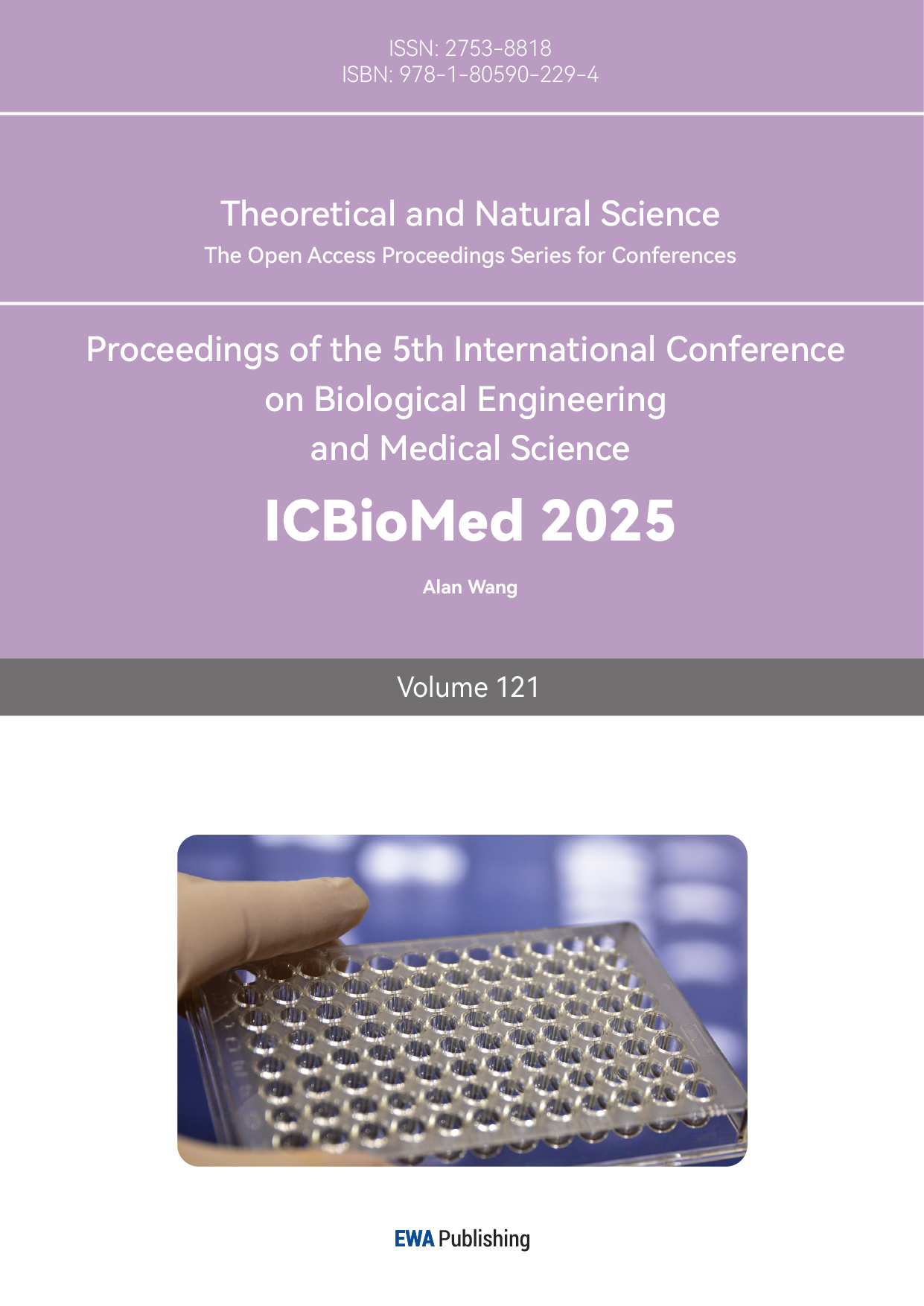References
[1]. Agras, W. S. (2001) The consequences and costs of the eating disorders. Psychiatric Clinics of North America, 24(2): 371-379.
[2]. Keski-Rahkonen, A. and Mustelin, L. (2016) Epidemiology of eating disorders in Europe: prevalence, incidence, comorbidity, course, consequences, and risk factors. Current opinion in psychiatry, 29(6): 340-345.
[3]. Beals, K. A. and Manore, M. M. (1994) The prevalence and consequences of subclinical eating disorders in female athletes. International Journal of Sport Nutrition and Exercise Metabolism, 4(2): 175-195.
[4]. American Psychiatric Association. (2013) Diagnostic and statistical manual of mental disorders (5th ed. ). Arlington, VA: American Psychiatric Publishing.
[5]. Galmiche, M. , et al. (2019) Prevalence of eating disorders over the 2000-2018 period: a systematic literature review. The American journal of clinical nutrition, 109(5): 1402-1413.
[6]. Qian, J. , et al. (2021) An update on the prevalence of eating disorders in the general population: a systematic review and meta-analysis. Eat Weight Disord. , 27(2): 415-428.
[7]. Lavender, J. M. , et al. (2014) Dimensions of emotion dysregulation in bulimia nervosa. European Eating Disorders Review, 22(3): 212-216.
[8]. Vanzhula, I. A. and Levinson, C. A. (2020) Mindfulness in the treatment of eating disorders: Theoretical rationale and hypothesized mechanisms of action. Mindfulness, 11 (5): 1090-1104.
[9]. Sala, M. , et al. (2020) Mindfulness and eating disorder psychopathology: A meta‐analysis. International Journal of Eating Disorders, 53(6): 834-851.
[10]. Kabat-Zinn, J. (1990) Full catastrophe living: Using the wisdom of your body and mind to face stress, pain, and illness. Delacorte Press.
[11]. Bishop, S. R. , et al. (2004) Mindfulness: A proposed operational definition. Clinical psychology: Science and practice, 11(3): 230.
[12]. Kabat-Zinn, J. (2013) Full catastrophe living, revised edition: how to cope with stress, pain and illness using mindfulness meditation. Hachette UK.
[13]. Goldberg, S. B. , et al. (2018) Mindfulness-based interventions for psychiatric disorders: A systematic review and meta-analysis. Clinical psychology review, 59: 52-60.
[14]. Kuyken, W. , et al. (2016) Efficacy of mindfulness-based cognitive therapy in prevention of depressive relapse. JAMA Psychiatry, 73(6): 565-574.
[15]. Segal, Z. V. , Williams, J. M. G. and Teasdale, J. T. (2013) Mindfulness-based cognitive therapy for depression: A new approach to preventing relapse. Guilford Press.
[16]. Kristeller, J. L. and Wolever, R. Q. (2014) Mindfulness-based eating awareness training for treating binge eating disorder: the conceptual foundation. Eating Disorders and Mindfulness, 93-105.
[17]. Turgon, R. , et al. (2019) Eating disorder treatment: a systematic review and meta-analysis of the efficacy of mindfulness-based programs. Mindfulness, 10: 2225-2244.
[18]. Hepworth, N. S. (2010). A mindful eating group as an adjunct to individual treatment for eating disorders: A pilot study. Eating disorders, 19(1): 6-16.
[19]. Godfrey, K. M. , Gallo, L. C. and Afari, N. (2015) Mindfulness-based interventions for binge eating: a systematic review and meta-analysis. Journal of behavioral medicine, 38: 348-362.
[20]. Kristeller, J. L. , Baer, R. A. and Quillian-Wolever, R. (2006) Mindfulness-based approaches to eating disorders. Mindfulness-based treatment approaches: Clinician’s guide to evidence base and applications, 75.
[21]. Gholamrezaie, S. (2016) Effectiveness of mindfulness based cognitive therapy on reduction of perceived stress and eating disorder in students with eating disorder symptoms. Studies in Medical Sciences, 27(9): 801-810.
[22]. Kearney, D. J. , et al. (2012) Participation in mindfulness-based stress reduction is not associated with reductions in emotional eating or uncontrolled eating. Nutrition Research, 32(6): 413-420.
[23]. Kristeller, J. L. and Hallett, C. B. (1999) An exploratory study of a meditation-based intervention for binge eating disorder. Journal of health psychology, 4(3): 357-363.
[24]. Zergani, M. J. , et al. (2024) Mindfulness-based eating awareness training versus itself plus implementation intention model: a randomized clinical trial. Eating and Weight Disorders-Studies on Anorexia, Bulimia and Obesity, 29(1): 53.
[25]. Hashemzadeh, M. , et al. (2019) Transtheoretical model of health behavioral change: A systematic review. Iranian journal of nursing and midwifery research, 24(2): 83-90.



